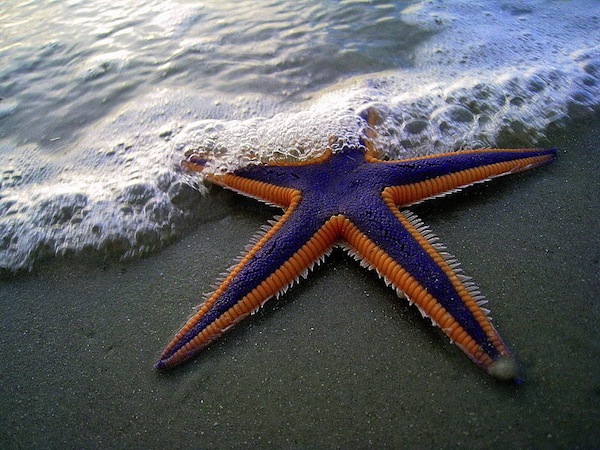
Motivational speakers are fond of telling a slightly corny, yet morally correct, story about a girl flinging starfish back into the ocean after a storm washed thousands of them onto a beach. The point of the story is that one person, while probably incapable of changing the world, can make a substantial difference in the lives of those whom they touch.
Unfortunately for motivational speakers, starfish may not be the most lovable example. To fishermen and marine biologists, starfish are an incredible nuisance. They eat oysters and clams, and they even destroy coral reef ecosystems, including the beloved Great Barrier Reef. To get rid of them, fishermen would chop them up and throw them back into the water.
The trouble with this strategy is that starfish can regenerate. A bisected starfish isn't a dead starfish: It's now two starfish. (And a starfish cut into five pieces turns into five starfish!)
In the world today, civilized societies are the fishermen, and terrorists are the starfish. If we leave the terrorists alone, they will destroy our global ecosystem; if we attack them, they multiply. This is the great paradox of foreign policy.
This paradox has received a lot of attention recently in regard to our drone campaign. Writing in The Atlantic, Hassan Abbas concludes that we simply don't know if drones are creating more terrorists than they kill.
Which is why the recent testimony of Yemeni writer Farea Al-Muslimi before the Senate is so troubling. He claims that drone strikes are terrifying his fellow countrymen and turning public opinion against the United States. Jihadists prey upon the poor, the angry and the fearful -- using their poisonous ideology to convert them into extremists.
This is largely what happened in Chechnya, the ancestral homeland of the Boston bombers. The Economist explains:
The nationalist cause that inspired Chechen fighters 20 years ago is now an Islamic one. Yet this mutation has as much do with Russiaâ??s ruthless actions in the region as with the global spread of Islamist fundamentalism.
The article concludes that "suppression alone is unlikely to bring greater security to Russia."
Any marine biologist would have known that.
(Image: Starfish via TheMargue/Wikimedia Commons)



